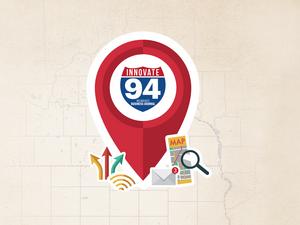
An artificial intelligence algorithm that can evaluate chest X-rays to diagnose possible cases of Covid-19 is being made available, at no cost, to health systems through Epic Systems Corp.'s software.
The algorithm was developed by a team of researchers at the University of Minnesota. The Verona-based electronic health records company recently worked with teams at the university and M Health Fairview to build the infrastructure around the algorithm, which automatically evaluates the X-ray as soon as the image is taken.
M Health Fairview is a collaboration between the University of Minnesota, University of Minnesota Physicians and Fairview Health Services. All 12 M Health Fairview hospitals are using the new algorithm.
“Epic software puts the University of Minnesota’s algorithm for predicting Covid-19 from X-rays into practice,” said Drew McCombs, an Epic software developer who worked with the U of M team. “Our cognitive computing platform quickly pulls the X-ray, runs the algorithm, and shows the resulting prediction directly in Epic software that doctors, nurses, and support staff use every day, speeding up treatment and helping protect staff. The algorithm is available to healthcare organizations around the world that use Epic.”
The algorithm is being made available on the Epic App Orchard, an app marketplace where software developers can list and share apps that can be used by health care providers. Epic launched the marketplace in 2017, where it has grown to a community of over 500 companies.
Epic is one of the largest privately held companies in Wisconsin with more than $3 billion in annual revenue and 10,000 employees.
“This may help patients get treated sooner and prevent unintentional exposure to Covid-19 for staff and other patients in the emergency department,” said Christopher Tignanelli, assistant professor of surgery at the University of Minnesota Medical School and co-lead on the algorithm project. “This can supplement nasopharyngeal swabs and diagnostic testing, which currently face supply chain issues and slow turnaround times across the country.”








